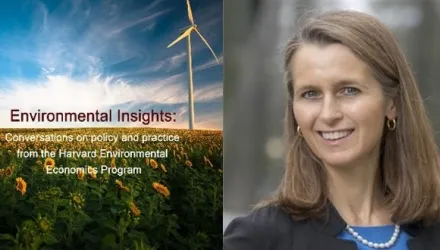Note on COP-25
This paper will serve as the basis for a panel event conducted by the Harvard Project on Climate Agreements at COP-25 in Madrid, Spain. Time and location are below, and more information here:
Reducing Greenhouse Gas Emissions through Carbon Pricing: Recent Research, Analysis, and Experience
Hosted by the Harvard Project on Climate Agreements and the Enel Foundation
Monday, December 9, 2019; 11:30 – 13:00
Location: Room 3
Abstract
There is widespread agreement among economists — and a diverse set of other policy analysts — that, at least in the long run, an economy-wide carbon-pricing system will be an essential element of any national policy that can achieve meaningful reductions of CO2 emissions cost-effectively in the United States and many other countries. There is less agreement, however, among economists and others in the policy community regarding the choice of specific carbon-pricing policy instrument, with some supporting carbon taxes and others favoring cap-and-trade mechanisms. How do the two major approaches to carbon pricing compare on relevant dimensions, including efficiency, cost-effectiveness, and distributional equity? This paper addresses this question by drawing on theories of policy instrument choice pertaining to the attributes — or merits — of the instruments. The paper also draws on relevant empirical evidence. It concludes with a look at the path ahead. Finally, the paper includes an appendix reviewing carbon pricing policy in South America.
Acknowledgement
The Harvard Project on Climate Agreements is grateful to the Enel Foundation and the Enel Endowment for Environmental Economics at Harvard University for generous support of a series of annual discussion papers on climate-change policy and related topics in energy policy, of which this paper is the ninth.
Author Affiliations
Robert N. Stavins
Director, Harvard Project on Climate Agreements
A.J. Meyer Professor of Energy and Economic Development, Harvard Kennedy School
Stavins, Robert N. “Carbon Taxes vs. Cap and Trade: Theory and Practice.” November 2019




